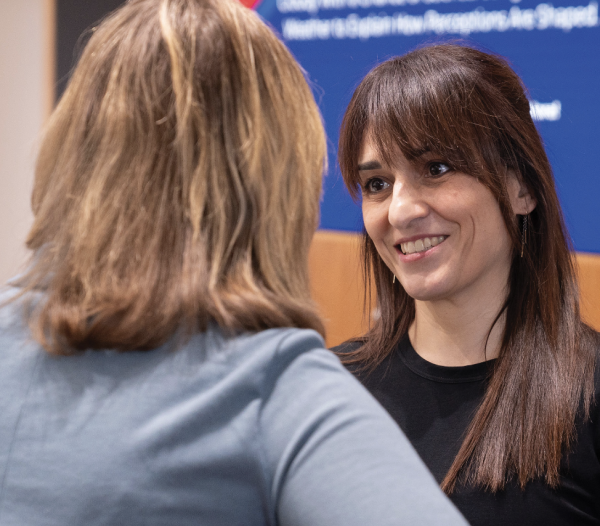
Annenberg Experts Unravel Social Media's Role in Democracy
After the surprising and turbulent 2016 United States presidential election, many observers accused Facebook of undermining the democratic process by serving up misinformation to its users. There wasn’t necessarily solid evidence that misinformation changed voting behavior, but many believed this was correct.
To understand the impact of social media on the 2020 election, Facebook’s parent company, Meta, allowed a team of 17 academic researchers from across the country to analyze a wealth of data never before seen by those outside the company.

Of these 17 researchers, five are Annenberg School faculty or alumni: Professor Deen Freelon, Professor Sandra González-Bailón, Natalie Jomini Stroud (Ph.D. ’06), Emily Thorson (Ph.D. ’13), and Magdalena Wojcieszak (Ph.D. ’09).
Professor González-Bailón says that the fact that many of her collaborators have connections to Annenberg is no surprise. “Annenberg has been a hub in political communication research for decades now,” she said, “so it naturally served as an incubator for many of the collaborative ties that are activated for projects like this.”
Thorson, the first Annenberg student to earn a joint doctoral degree in communication and political science and now an assistant professor of political science at Syracuse University, agrees.
“Annenberg is truly committed to interdisciplinary work,” Thorson said. “The ability to translate between political science, communications, and policy, for example, is really helpful for a large-scale project like this.”
In July 2023, the group published their first round of findings — four papers in Nature and Science examining how the design and algorithms of Facebook and Instagram content affected American voters in the 2020 election. They found:
- Algorithms are extremely influential in terms of what people see and in shaping their on-platform experiences.
- There is significant ideological segregation in political news exposure.
- Algorithm adjustments significantly change what people see and their level of engagement on the platforms, but three-month experimental adjustments did not notably affect political attitudes.
In May 2024, a fifth paper by the team, published in the Proceedings of the National Academy of Sciences, showed that when over 35,000 Facebook and Instagram users deactivated their accounts for six weeks before the 2020 U.S. election, it had little or no effect on their political views, negative opinions of opposing parties, or beliefs around election fraud claims.
“Each paper has a core team that worked on it, but all authors who worked on any paper are represented on all papers,” said Freelon, the lead author of an upcoming paper on hateful content on the platforms. “We all collectively created the general blueprint that all papers have and will follow.”
An additional dozen or so papers from the project will reach publication — and no doubt make headlines — in the coming years.
